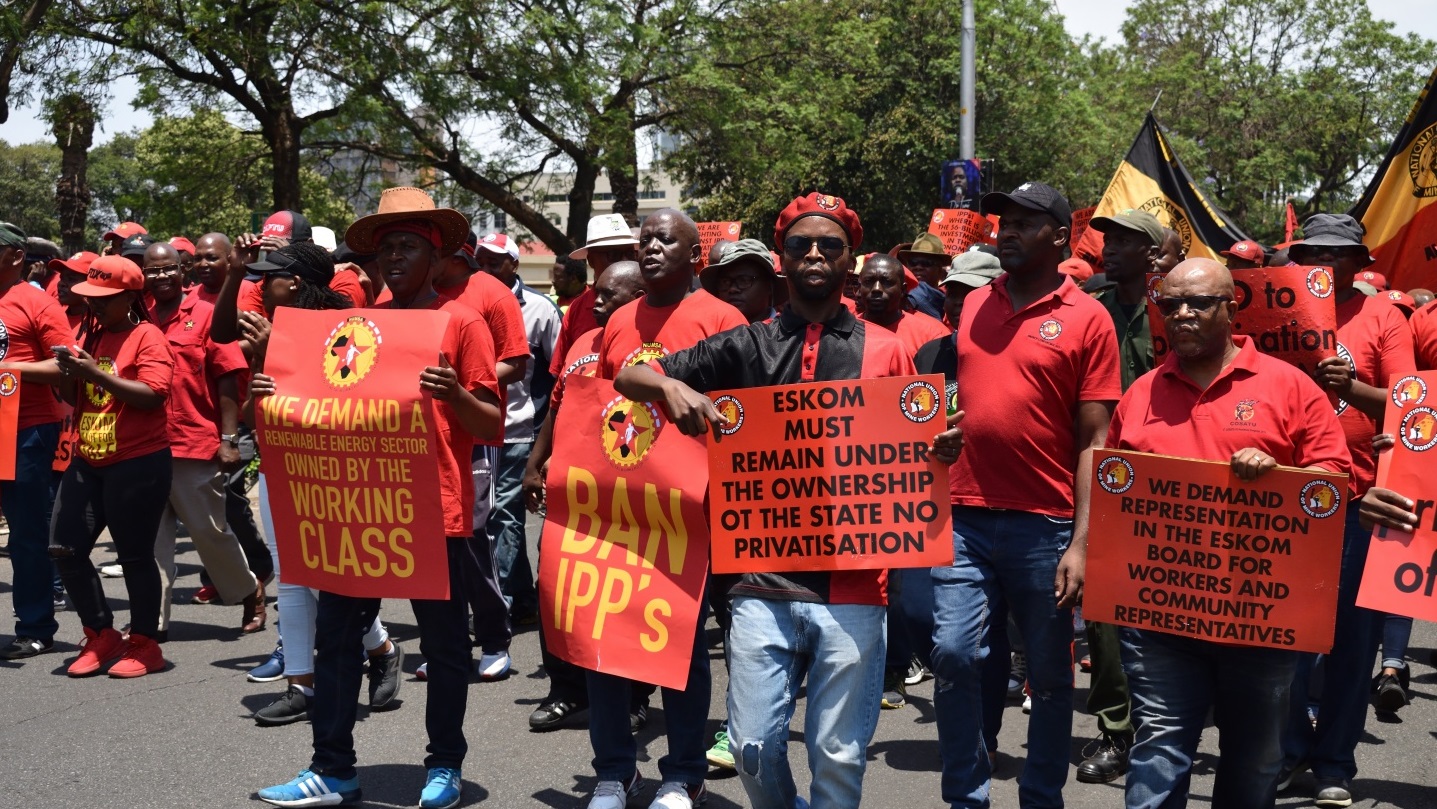Outrage has grown across South Africa following the decision by the National Energy Regulator of South Africa (Nersa) to approve an 18.65% hike in electricity tariffs. The decision was announced on Thursday, January 12, in response to an application by state-owned energy utility company Eskom, which supplies over 90% of South Africa’s electricity.
Eskom had initially sought a 32% increase in tariffs for 2023-24, set to take effect from April. It had also sought a 22.52% hike for 2024-25, however, Nersa only approved a 12.74% hike for that period.
The decision came just a day after Eskom declared that it was extending its “Stage 6” rolling blackouts, or load-shedding, “until further notice,” adding that 11 of its generators across eight power plants had undergone breakdowns since Tuesday.
Stage 6 power outages, deemed the “worst outage level on record,” mean electricity cuts for up to eight hours a day. Eskom had first upgraded the power cuts from Stage 4 to Stage 6 in December last year, stating that eight power units had broken down.
The company had already been implementing rotational blackouts throughout 2022, crossing 200 days of power cuts as December drew to a close. While the extent of outages last year was considered to be the worst in years, Eskom’s coal-dependent power plants have failed to properly meet energy needs for at least the last 15 years.
Regular outages have led to a substantial economic fallout, with the World Bank placing the estimated cost of rationing in 2022 at $24 billion. Frequent and extended power outages also have serious implications for critical public infrastructure like hospitals and sewage systems.
As electricity costs are set to rise even further, and are likely to disproportionately affect the 55% of South Africa’s population that is already living in poverty, the crisis at Eskom is symptomatic of the broader consequences of austerity and privatization adopted by the ruling African National Congress (ANC).
“We see this as an example of how energy generation in this country is going to be privatized because as long as there is no solution to load-shedding, then we will accept any cost for the price of energy as long as whoever the service provider is able to guarantee energy supply,” Phakamile Hlubi-Majola, national spokesperson of the National Union of Metalworkers of South Africa (NUMSA), told Peoples Dispatch.
“South Africa is subjected to the highest levels of load-shedding in the history of Eskom’s existence…The ANC is driving the privatization of State Owned Enterprises (SOEs) and as long as we don’t have a solution to load shedding then it becomes easier to justify the involvement of private energy companies in the provision of energy generation in South Africa,” she said.
In a statement on December 13 last year, NUMSA had asserted that “Load Shedding is a consciously engineered crisis which the capitalist class, including [President] Ramaphosa and his family are directly benefiting from.”
One of the major factors behind Eskom’s soaring debt, which currently stands at 400 billion rand ($23.5 billion), has been identified as its high primary energy costs due to purchase of energy from private generators.
Eskom’s contracts with private Independent Power Producers (IPPs) are among the reasons it is seeking a tariff hike. Instead of investing and upgrading the coal-dependent infrastructure of state-owned Eskom, the recent push towards renewables in South Africa, particularly the $8.5 billion dollar Just Energy Transition Investment Plan funded by Western countries, is focused on expanding the private sector’s role in energy generation.
This approach has raised some glaring issues, including the fact that the bulk of the funding is in the form of loans. There also seems to be no plan in place to mitigate the social impact of decommissioning Eskom’s coal plants on communities and workers dependent on them for their livelihoods.
Also read: “South Africa’s ‘Just’ Transition climate deal with the west is a betrayal of the working class”
“If we are genuine about dealing with the issue of dealing with climate change… and how it’s affecting the poor and the working class, then the thing that would actually make sense would be to give Eskom 70% of the renewable energy market, because, in doing so, you are forcing Eskom as an entity to transition, and to depend less on coal, and to also form a part of this process, to be able to contribute and to provide renewable energy…,” Hlubi-Majola stressed.
“The fact that the ANC government has not allocated Eskom a role in this, means that they are not serious about adhering to the principles of a just transition, which really are about protecting communities, protecting workers, and their jobs and livelihoods,” she said.
“Electricity will cost more and it will mean that the poor and the working class again will be denied access to something that can really assist in development… What will this mean for South Africa’s development agenda when we are beholden to Western Europe in the form of extremely costly loans?”
NUMSA has instead consistently called for a greater role for Eskom in the generation and provision of renewable energy and for a just transition that results in the “long term sustainability of the masses, not in the enrichment of an elite minority,” she added.





